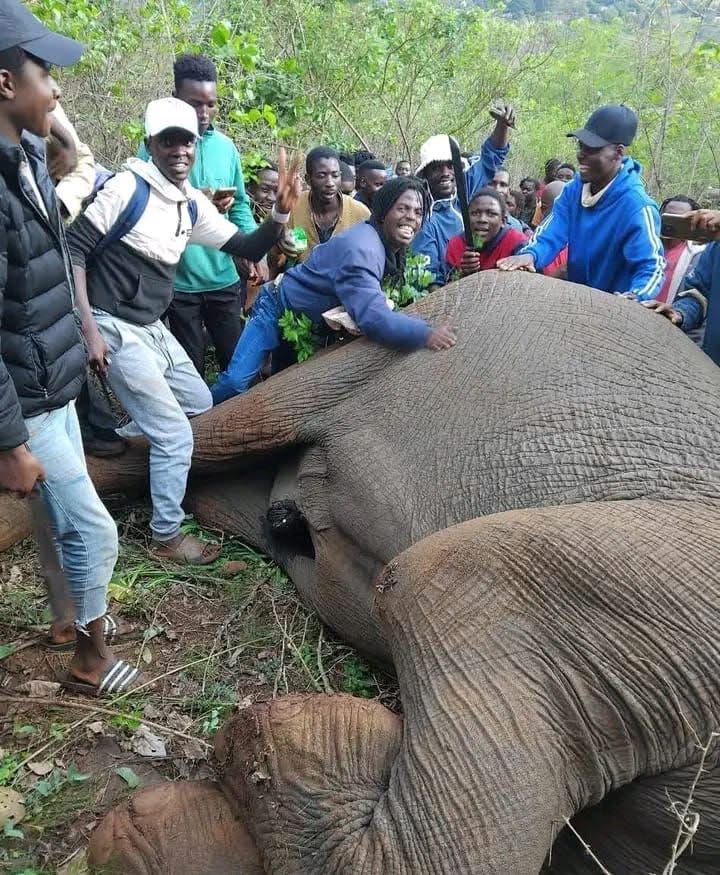By Staff Reporter
THOHOYANDOU – There was jubilation in Khubvi village outside Musina after residents went on a feeding frenzy when an elephant was killed by wildlife officials on Thursday, turning the scene into what many described as an “early Christmas celebration.”
According to reports, wildlife rangers were alerted after the elephant was spotted wandering dangerously close to homes near the Ngwedi Bridge. The animal was subsequently killed by officials after it posed a threat to the community.
However, once news of the dead elephant spread, hundreds of villagers armed with pangas, knives, and buckets rushed to the scene to harvest the meat. Videos shared on social media show large crowds cutting and collecting chunks of meat while others cheered.
One resident could be heard saying, “Christmas has come early for us!” as people filled their containers with meat. Another video captured voices shouting, “Where is the trunk? It’s gone within two minutes!” — suggesting that some parts of the elephant were taken almost immediately.
Environmental authorities confirmed that while community members are often allowed to take the meat, certain parts of the animal, such as the tusks and tail, must be removed by officials for legal and conservation reasons.
The incident highlights a growing challenge in areas bordering the Kruger National Park and along the Limpopo River, where elephants frequently stray into villages. In recent months, elephants have destroyed crops and fences in Khubvi, Mukula, and other neighbouring areas, leaving farmers counting heavy losses.
The porous fences separating wildlife areas from human settlements have been blamed for the recurring problem.
Efforts to reach LEDET spokesperson Zaid Kalla for official comment were unsuccessful at the time of publishing.
For many Khubvi residents, though, the day ended on a lighter note — with full plates and grateful hearts, describing the rare event as “a Christmas feast come early.”




